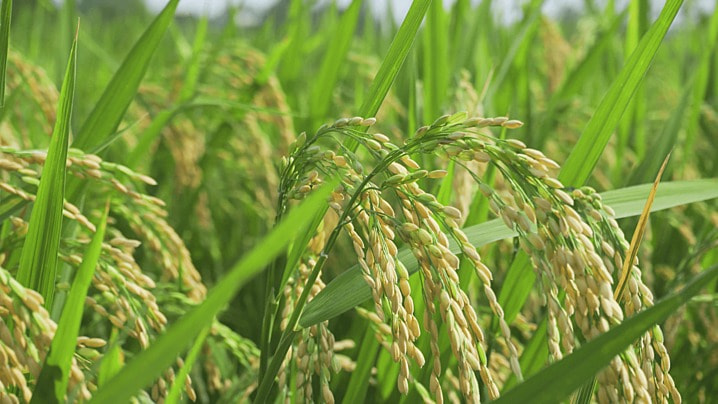Introduction:
In the realm of modern agriculture, agrochemicals play a pivotal role in enhancing crop productivity, managing pests, and ensuring food security. However, their relationship with soil health has become a contentious topic, often surrounded by myths and misconceptions. This article aims to clarify the realities of agrochemicals and their effects on soil health while outlining best practices for maintaining soil quality.
Understanding Agrochemicals
Agrochemicals, encompassing fertilizers, pesticides, herbicides, and fungicides, are chemical substances used in agriculture to improve crop yield and protect plants from pests and diseases. While their benefits are undeniable, concerns regarding their impact on soil health have sparked heated debates.
The Importance of Soil Health
Soil health is foundational to sustainable agriculture. Healthy soil supports plant growth, regulates water, and serves as a habitat for a myriad of organisms. It also plays a crucial role in carbon storage and climate regulation. Maintaining soil health is essential for achieving long-term agricultural productivity.
Myths Surrounding Agrochemicals and Soil Health
Myth 1: All Agrochemicals Are Harmful to Soil
One of the most pervasive myths is that all agrochemicals negatively impact soil health. While some products can be detrimental if misused or over-applied, many agrochemicals are designed to be applied in ways that minimize their impact on soil ecosystems. For example, modern fertilizers can enhance soil fertility and stimulate microbial activity when used correctly.
Reality Check
Research shows that responsible agrochemical use can lead to improved soil health. For instance, nitrogen fertilizers, when applied in appropriate amounts, can enhance microbial populations that facilitate nutrient cycling. Moreover, integrated pest management (IPM) practices can reduce reliance on harsh chemicals, thus mitigating potential soil harm.
Myth 2: Agrochemicals Lead to Soil Degradation
Another common belief is that agrochemical use leads directly to soil degradation. While over-reliance on certain chemicals can contribute to problems like nutrient imbalances and soil acidity, it is not the agrochemicals themselves that cause degradation; rather, it is the mismanagement of these inputs.
Reality Check
Soil degradation results from a combination of factors, including poor agricultural practices, erosion, and land use changes. When used as part of a comprehensive soil management strategy—including cover cropping, crop rotation, and conservation tillage—agrochemicals can contribute to sustainable soil health.
Myth 3: Organic Farming Is the Only Path to Healthy Soil
Many proponents of organic farming argue that it is the only method that ensures healthy soil. While organic practices can promote soil health, they are not the sole solution. Conventional farming methods, when implemented with an emphasis on sustainability, can also maintain and even improve soil quality.
Reality Check
Integrating agrochemicals with organic practices can yield the best outcomes. For instance, using organic amendments like compost alongside judicious agrochemical applications can enhance soil structure and fertility while maintaining microbial diversity.
Best Practices for Maintaining Soil Quality
To harness the benefits of agrochemicals while preserving soil health, farmers should adopt best practices that balance chemical use with sustainable agricultural techniques.
1. Soil Testing
Regular soil testing is crucial for informed decision-making. Testing allows farmers to understand soil composition, pH, nutrient levels, and potential contamination. This information helps tailor agrochemical applications, preventing overuse and optimizing crop yields.
2. Integrated Pest Management (IPM)
IPM is an effective approach that combines biological, cultural, and chemical methods to manage pests sustainably. By prioritizing non-chemical controls, such as crop rotation and the introduction of beneficial insects, farmers can reduce reliance on agrochemicals, thus protecting soil health.
3. Precision Agriculture
Utilizing technology in farming practices can enhance the efficiency of agrochemical use. Precision agriculture employs data analytics, GPS, and sensors to apply chemicals precisely where and when needed, minimizing excess application that can harm soil quality.
4. Cover Cropping
Cover crops are a sustainable practice that can improve soil health. By planting cover crops during the off-season, farmers can prevent soil erosion, enhance soil structure, and increase organic matter, which can mitigate the negative effects of agrochemicals.
5. Crop Rotation
Crop rotation is another effective strategy for maintaining soil health. By alternating crops, farmers can break pest and disease cycles, improve soil fertility, and reduce the need for chemical inputs. This practice fosters a more resilient and diverse soil ecosystem.
6. Organic Amendments
Incorporating organic amendments, such as compost, can significantly enhance soil health. These materials improve soil structure, increase microbial activity, and boost nutrient content, providing a buffer against the potential negative impacts of agrochemicals.
7. Conservation Tillage
Conservation tillage practices reduce soil disturbance, helping to maintain soil structure and health. By minimizing tillage, farmers can preserve soil moisture and organic matter, which can enhance the overall resilience of the soil ecosystem.
The Future of Agrochemicals and Soil Health
The future of agrochemicals in agriculture is evolving, with a growing emphasis on sustainability and environmental stewardship. Advances in biotechnology and precision farming are leading to the development of more targeted and environmentally friendly agrochemical solutions. As farmers and researchers continue to work together, innovative practices will emerge to optimize agrochemical use while prioritizing soil health.
Conclusion
Understanding the relationship between agrochemicals and soil health is critical for modern agriculture. By debunking common myths and focusing on best practices, farmers can utilize agrochemicals responsibly, promoting crop productivity while maintaining soil quality. Embracing a holistic approach that integrates agrochemical use with sustainable practices will pave the way for a healthier and more resilient agricultural system.
See the full article: https://www.nextmsc.com/blogs/agrochemicals-market-trends





Comments